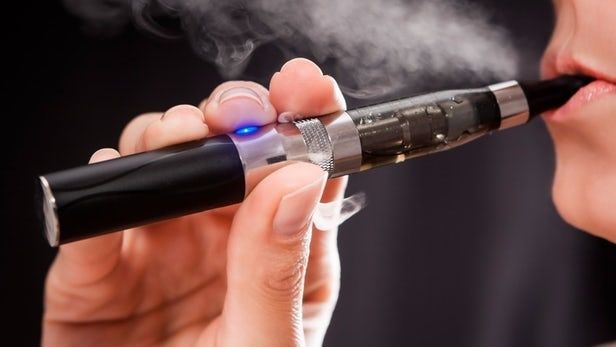Secondhand E-Cig Vapors May Cause Asthma Exacerbations
A recent study found a link between electronic nicotine delivery systems and asthma symptoms.

While there is ample evidence supporting the dangers of secondhand smoke from combustible cigarettes, investigators are just beginning to evaluate how ENDS (electronic nicotine delivery systems) products impact nonsmokers. A recent study, the first of its kind, suggests a link between ENDS aerosols and asthma symptoms in youth.
A recently published report by the National Academies of Sciences, Engineering, and Medicine found that there is moderate evidence for “increased cough and wheeze” in adolescents who use ENDS, and that there is a relationship between ENDS use and increased asthma exacerbations.
“Little is actually known regarding the effects of ENDS use on health, and even less is known regarding secondhand exposure to aerosols from these products,” said lead investigator Jennifer E. Bayly, BS, a doctoral student and medical research scholar at Rutgers Robert Wood Johnson Medical School, told MD Magazine®. “People often refer to these aerosols as “vapor” and may perceive them as only containing water and, therefore, completely harmless, which is not true.”
While ENDS aerosols contain lower levels of toxins compared to combustible cigarettes, the vapors are not free of toxic ingredients. According to the Centers for Disease Control and Prevention (CDC), ENDS contain heavy metals, ultrafine particulate, and cancer-causing agents.
In addition, the number of youth using ENDS products continues to rise. From 2011 to 2015, previous 30-day use of ENDS increased from 1.5% to 16% for middle school students. In 2013, over a quarter million middle and high school students who had never smoked a combustible cigarette had used ENDS.
For this study, data was pooled from the Florida Youth Tobacco Survey, an annual survey conducted by the Florida Department of Health annually. It includes all public middle and high schools in Florida’s 67 counties. Final sample included 753 of 756 selected schools.
Subjects were between the ages of 11 and 17 years old with a self-reported diagnosis of asthma. Those who said they never had asthma were excluded from the study.
Results showed that among asthmatic youth, secondhand hand exposure to ENDS aerosols was associated with an increased likelihood of reporting an asthma attack (adjusted OR, 1.27%; 95% CI, 1.11 to 1.47).
Between 4% and 6% of the sample reported current combustible cigarette smoking, cigar smoking, or hookah use, while almost 12% reported current ENDS use.
“Those with asthma should evaluate exposure to ENDS aerosols as a possible trigger for their asthma symptoms and consider updating their asthma management plans to include avoiding such exposure,” said Bayly.
Healthcare providers who care for asthma patients may also want to include exposure to ENDS aerosols in their asthma home environment assessments, adds Bayly. Viewing ENDS as benign can have an impact on the choices to use these products around vulnerable populations, which makes it imperative to study the health effects of ENDS.
Some limitations include self-reported data, using only subjects from Florida public schools, and the cross-sectional study design that prevents determining causality between secondhand ENDS aerosol exposure and asthma exacerbations.
“Our findings are suggestive, so future studies need to longitudinally evaluate the health effects of secondhand exposure to ENDS aerosols,” said Bayly.
The study, “Secondhand Exposure to Aerosols from Electronic Nicotine Delivery Systems and Asthma Exacerbations Among Youth with Asthma,” was published in the January issue of Chest Journal.